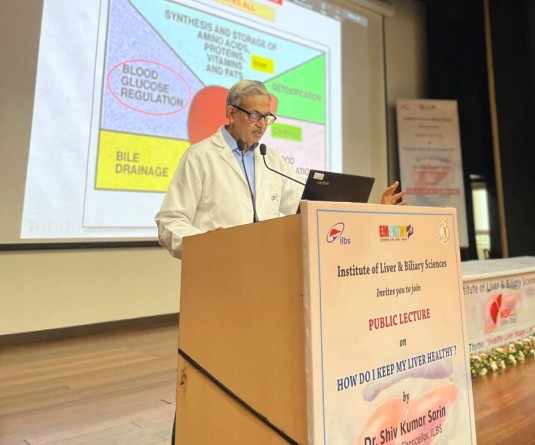Low-dose aspirin may reduce liver cancer risk

New York, March 13 (IANS) Among adults at high risk of liver cancer, those who took low-dose aspirin were less likely to develop the disease or to die from liver-related causes, researchers have found.
"Rates of liver cancer and of mortality from liver disease are rising at an alarming pace in US and European countries. Despite this, there remain no established treatments to prevent the development of liver cancer, or to reduce the risk of liver-related death," said the study's lead author Tracey Simon from the Massachusetts General Hospital (MGH).
For the findings, published in the New England Journal of Medicine, the research team examined information from Swedish registries on 50,275 adults who had chronic viral hepatitis, a type of liver infection that is caused by the hepatitis B or C virus and is the most common risk factor for liver cancer.
Over a median follow-up of nearly eight years, 4.0 per cent of patients who took low-dose aspirin (less than 163mg/day) and 8.3 per cent of nonusers of aspirin developed liver cancer.
According to the researchers, aspirin users had a 31 per cent lower relative risk of developing liver cancer. Importantly, the study showed that the longer a person took low-dose aspirin, the greater the benefit.
Compared with short-term use ( three months to one year), the risk of liver cancer was 10 per cent lower for 1-3 years of use, 34 per cent lower for 3-5 years of use, and 43 per cent lower for five or more years of use, the study said.
Also, liver-related deaths occurred in 11.0 per cent of aspirin users compared with 17.9 per cent of nonusers over 10 years, for a 27 per cent lower risk.
According to the study, the benefits were seen regardless of sex, severity of hepatitis, or type of hepatitis virus (B or C).
The risk of internal bleeding--a concern when taking aspirin long-term--was not significantly elevated among aspirin users, the research added.
The researchers noted that prospective randomized controlled trials are needed to test the benefits of aspirin for patients affected by liver disease.





